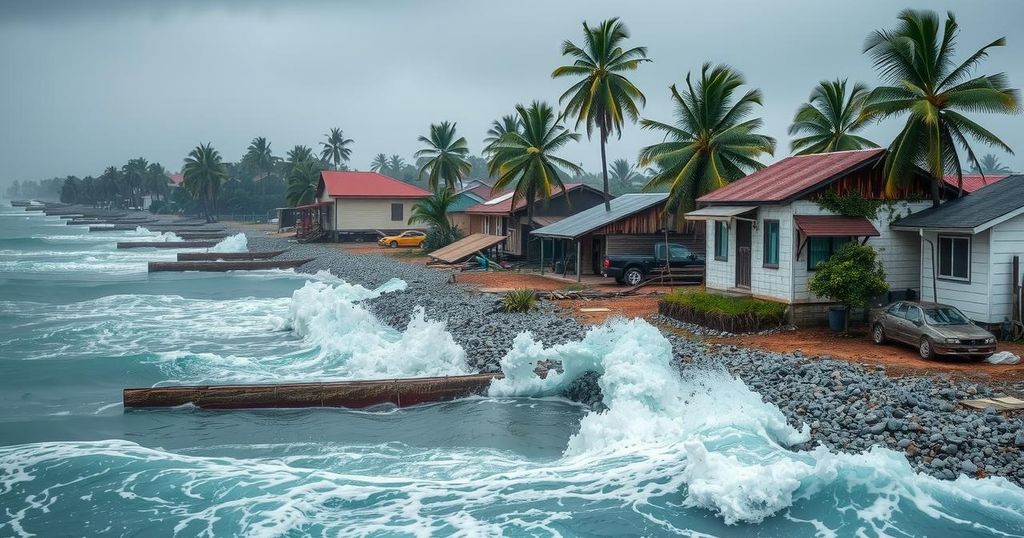Mozambique’s death toll from Tropical Cyclone Chido has risen to 94, with the cyclone causing extensive damage and affecting over 620,000 people. Reports of 35 deaths in Mayotte suggest a potential rise in casualties, while Malawi has recorded 13 fatalities. The cyclone’s severity highlights concerns related to climate change and ongoing political unrest in the region.
Mozambique has officially revised the death toll from Tropical Cyclone Chido, increasing it from 76 to 94 fatalities as recovery efforts continue in the wake of the storm’s devastation. The cyclone, which reached category four strength, wreaked havoc across the west Indian Ocean before impacting Mozambique’s northern Cabo Delgado province with wind gusts of approximately 160 miles per hour and record rainfall. The impact has left an estimated 500,000 Mozambicans among the 620,000 affected, with significant destruction reported, including the devastation of 110,000 homes.
Meanwhile, authorities in the French territory of Mayotte continue to report 35 deaths and 2,500 injuries, with fears of a rising toll due to the undocumented migrant population in informal settlements that were impacted by the cyclone. In remarks made during a visit to Mayotte, French President Emmanuel Macron faced criticism for his comments directed towards hecklers, suggesting their situation could have been significantly worse had they not been part of France.
As the cyclone progressed, it also crossed into Malawi, where it resulted in the deaths of at least 13 individuals and injuries to nearly 30 while losing intensity. The aftermath of Cyclone Chido highlights the broader impacts of climate change, which experts suggest intensified the storm’s destructive force. Moreover, the timing of the disaster coincides with ongoing civil unrest in Mozambique following a disputed electoral process, further complicating the recovery efforts after this natural disaster.
Tropical Cyclone Chido a powerful storm that traversed the west Indian Ocean, left a significant impact on Mozambique, the French territory of Mayotte, and Malawi. The storm’s intensity and the destruction it caused has been attributed in part to human-driven climate change, highlighting the increasing severity of natural disasters linked to global warming. Mozambique, already facing political turmoil following a contentious election, now grapples with both recovery from the cyclone and social unrest. Mayotte’s situation is further complicated by the presence of undocumented migrants, making recovery more challenging.
The repercussions of Tropical Cyclone Chido have been devastating, particularly in Mozambique, where the revised death toll and substantial property damage are stark reminders of the increasing violence of climate-related disasters. Given the additional challenges posed by political unrest and the complexities of recovery in areas with large migrant populations, the path forward will require significant aid and effective disaster management strategies. As recovery efforts continue, the importance of addressing the impacts of climate change remains paramount for future preparedness.
Original Source: www.abc.net.au






